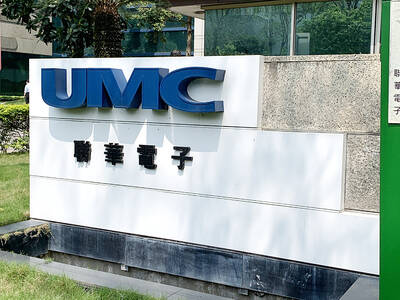Taiwanese flat-panel TV maker Amtran Technology Co Ltd (瑞軒) said yesterday its affiliate, Vizio Inc, had filed an anti-trust and unfair competition lawsuit against its Japanese rival, Funai Electronics Co, in the US.
The latest legal action by Vizio followed a ruling by the US International Trade Commission’s that invalidated a related patent that Funai had attempted to enforce against Vizio and to review a judge’s prior decision that Vizio had infringed on part of US Patent No. 6,115,074.
Irvine, California-based Vizio alleged that Funai, “acting alone and in concert with others, unlawfully restrained trade and monopolized the market for the licensing of technology used to interpret and retrieve information from a digital television broadcast signal, as well as the market for digital television sets and receivers,” Amtran said, citing Vizio.
Amtran has a 23 percent stake in Vizio and makes flat-screen TVs for the US’s third-largest liquid-crystal-display (LCD) panel TV maker.
“The company will safeguard the company’s legal rights and seek any possible means to protect the company’s interest,” Amtran said in a filing to the Taiwan Stock Exchange yesterday.
Vizio expanded its share of the US LCD market by volume to 12.8 percent in the fourth quarter of last year, up from the third quarter’s 8.4 percent, behind Sony Corp and top-brand Samsung Electronics Co, market researcher DisplaySearch’s latest tallies showed.
Vizio filed the antitrust and unfair competition lawsuit in the US District Court, Central District of California, against Funai and related components, a company statement released earlier this month on its Web site said.
“VIZIO, as America’s HDTV Company, has been instrumental in making high quality flat panel TVs more affordable for Americans. Especially in light of the nation’s digital TV transition, we won’t allow a foreign competitor to divert us from our mission to bring affordable high quality HDTVs to millions of Americans,” Vizio co-founder Laynie Newsome said in a statement.
Amtran jumped 3.2 percent to NT$11.25 yesterday, outperforming the TAIEX’s 0.9 percent rise.

MAJOR BENEFICIARY: The company benefits from TSMC’s advanced packaging scarcity, given robust demand for Nvidia AI chips, analysts said ASE Technology Holding Co (ASE, 日月光投控), the world’s biggest chip packaging and testing service provider, yesterday said it is raising its equipment capital expenditure budget by 10 percent this year to expand leading-edge and advanced packing and testing capacity amid strong artificial intelligence (AI) and high-performance computing chip demand. This is on top of the 40 to 50 percent annual increase in its capital spending budget to more than the US$1.7 billion to announced in February. About half of the equipment capital expenditure would be spent on leading-edge and advanced packaging and testing technology, the company said. ASE is considered by analysts

TRANSFORMATION: Taiwan is now home to the largest Google hardware research and development center outside of the US, thanks to the nation’s economic policies President Tsai Ing-wen (蔡英文) yesterday attended an event marking the opening of Google’s second hardware research and development (R&D) office in Taiwan, which was held at New Taipei City’s Banciao District (板橋). This signals Taiwan’s transformation into the world’s largest Google hardware research and development center outside of the US, validating the nation’s economic policy in the past eight years, she said. The “five plus two” innovative industries policy, “six core strategic industries” initiative and infrastructure projects have grown the national industry and established resilient supply chains that withstood the COVID-19 pandemic, Tsai said. Taiwan has improved investment conditions of the domestic economy

Huawei Technologies Co’s (華為) latest smartphones carry a version of the advanced made-in-China processor it revealed last year, results from an independent analysis showed. This underscored the Chinese company’s ability to sustain production of the controversial chip. The Pura 70 series unveiled last week sports the Kirin 9010 processor, research firm TechInsights found during a teardown of the device. This is a newer version of the Kirin 9000s, made by Semiconductor Manufacturing International Corp (SMIC, 中芯) for the Mate 60 Pro, which had alarmed officials in Washington who thought a 7-nanometer chip was beyond China’s capabilities. Huawei has enjoyed a resurgence since

IMPROVEMENT EXPECTED: The company holds a cautiously optimistic view about this year, an official said, adding that an increase in wafer shipments is predicted United Microelectronics Corp (UMC, 聯電) yesterday reported its weakest quarterly net profit in three years, which it attributed to a prolonged inventory correction. However, the company said it expects wafer shipments to grow about 3 percent this quarter as demand from communication and computer segments is to pick up from last quarter. Net profit plunged 35.4 percent to NT$10.46 billion (US$321.6 million) in the first quarter of the year, compared with NT$16.18 billion a year earlier, making it the worst quarterly performance since the first quarter of 2021. On a quarterly basis, net profit declined 20.8 percent from NT$13.2 billion, the Hsinchu-based